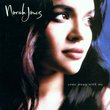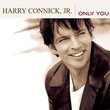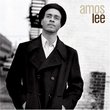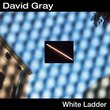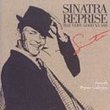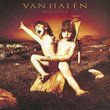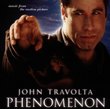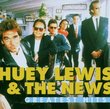| All Artists: David Gray Title: Foundling Members Wishing: 0 Total Copies: 0 Label: Downtown Original Release Date: 1/1/2010 Re-Release Date: 8/17/2010 Genres: Pop, Rock Style: Number of Discs: 2 SwapaCD Credits: 2 Other Editions: Foundling UPC: 878037019322 |
Search - David Gray :: Foundling
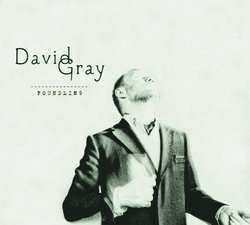 | David Gray Foundling Genres: Pop, Rock
Foundling -- the stunning new effort by internationally acclaimed singer-songwriter David Gray -- begins with those evocative and somewhat mysterious words. What follows is an extraordinary song cycle of rare and timeles... more » |
Larger Image |
CD DetailsSynopsis
Product Description Foundling -- the stunning new effort by internationally acclaimed singer-songwriter David Gray -- begins with those evocative and somewhat mysterious words. What follows is an extraordinary song cycle of rare and timeless power that bears a rather fitting title. As people today may or may not remember, the word "foundling" is defined as "an infant found after its unknown parents have abandoned it." And as Gray puts it with a warm laugh, "Foundling sort of arrived at my door without my asking it to, so it felt very appropriate for this album." In a sense, Foundling also marks another notable arrival -- the second coming of David Gray's own second coming -- and one that truly "sprung like a wild orchid" in its own right. By 2005, Gray had already enjoyed what has been a rather distinguished career as a singer-songwriter and recording artist, having sold more than 12 million albums, including his global left-field smash, 1998's White Ladder, which remains the single best selling album in Irish history. Gray had by this point already won two Ivor Novello Awards, a Q award, two Brit nominations and a GRAMMY nomination. But not a man or artist content to ever rest on his laurels, Gray decided that the time has come to shake things up in a significant way. So in 2006, David Gray decided to disband his longtime backing group, and to attempt to reconnect with his music before recording his excellent 2009 album Draw The Line with a new group of players at his studio The Church. "Draw the Line was essentially about the band, and four people playing together in a room," says Gray. "But you can't just keep going for unlimited takes. So on days when I felt everyone was getting a bit worn down and frayed at the edges -- and that it might be good to give everyone a little space -- I'd go into the studio on my own or maybe with one other person. I'd either work on tracks we already recorded or try to record other songs with just me on piano or guitar. That's a lot of what eventually became Foundling. In essence, Foundling became an alternate musical universe to Draw The Line. As Gray puts it," Foundling was an album done in slices of time in between band recording sessions. Eventually, I had the thought of recording and then mixing two separate albums during the same time period, so I then went back and took a closer look at the tracks and recorded a few overdubs and attempted to add a few finishing touches so that they sounded more complete. That's how Foundling became like a tapestry that I hung on the other side of The Church. And I kept walking over and making little marks on it, and before you knew it, what started off as a side project was holding my attention as well as the main work." In the end, Foundling looks like the most gorgeous and minimalist musical tapestry that David Gray has ever created -- one that alternately suggests the early work of The Band, Randy Newman and Tom Waits, but without sounding remotely like a piece of nostalgia. Like the recent productions of T-Bone Burnett, this is music that seems to exist almost outside of time, yet feels fantastically modern and stripped of all unnecessary varnish. "Because I've done so much recording lately, I think you eventually get braver," says Gray. "You think `I can go even further with this - I can do even less.' So there's definitely a sense here of reducing the songs to their absolute bare minimum. It's that core notion of getting to the gist of the song. On Draw The Line and in a different way here, I didn't concern myself with trying to use very current sounds that might date badly. I just focused on getting the song down by the simplest means possible." Working this way was ultimately very emancipating for Gray. "We were very unfussy on this record," he says. "I felt like this was my private record. I didn't get too picky with the vocals, and I didn't have to think about things like potential airplay. So I threw all of that stuff out and it's actually a wonderfully liberating feeling. You think, `This hasn't got a cat in hell's chance of getting on the radio, so let's make this the way we feel it ought to be made. We just made it the way we wanted to." When it's pointed out that he was always a bit of a left-field success story, and that Foundling might find a home on the airwaves simply because it's so good, he laughs and adds, "I could see these songs doing well at the cinema or maybe on TV because there is a cinematic quality to some of the stuff. Maybe that could unlock the record in some way, but it's hard to imagine it getting on the radio as it stands. But who cares anyway? Fuck it, we love it." "Frankly, I can't wait for this bloody thing to come out because I'm still tearing my hair out about what to leave in and not," Gray adds with a hearty laugh. "It's basically the record I've been wanting to make for a long time and it's as strong a statement as White Ladder in its own way. The album is like a stepping off point for what might happen next. It's like I'm really putting my money where my mouth is with this one." FOUNDLING: SONG-BY-SONG WITH DAVID GRAY: ONLY THE WINE: "Only The Wine" was born out of a little guitar motif with a slight nod toward "Norwegian Wood." That first line was key: "Sprung like a wild orchid." I thought that the whole song sounded like something woody -- something you'd find growing in a field. When we recorded "Only The Wine," the song had this beautiful warm sound. Everyone was playing quite tentatively and innocently because we hadn't settled into that whole "We know what we're doing" feeling. So this song had the sense I love of players still reaching for something. FOUNDLING: This was a key track because of the soundscape of it. It's just a two chord thing, and yet it feels like new territory to me. For me, "Foundling" is a sort of a road marker left at the end of the last recording session to tell me where to start next time around. Like, "Start there next time and just keep going further out." There's no use trying to unwrap the lyrics for this song or "Only the Wine" -- it's just bring your own pictures because that's all I'm creating here, and make your own meaning too. FORGETTING: This one is self-explanatory to the point that it would be stupid to explain it when it's so obvious what it's about. The lyrics came first for a change here. What happened during this whole period of this recording is that the joy of words and language and writing came back to me full force. That's still with me, and I think that's where I'm strongest and it's where I'll be concentrating a lot of my energies next time around. So I think there may be a few more lyrics first scenarios around the corner for me. GOSSAMER THREAD: This song came to me some time ago, and I just got this really strong picture of a person, this semi-derelict person, just drifting from city to city, hanging on to life as if by a gossamer thread. We all know how that feels sometimes. In terms of recording, as a piece of playing, it took a lot of effort to get it all in one take, and by the end of the session we were so worn out we just put it to one side and didn't listen to it for months. It was the very last thing we mixed on the record, and when we put up the faders it was the most pleasant surprise of the whole mixing session. It sounded great and it just sort of mixed itself. IN GOD'S NAME: It's the song I wrote to my friend Bryan Glancy, an English singer songwriter who also inspired Elbow's record The Seldom Seen Kid. He was a great character and a dear friend to us all, and he died shortly after I wrote this song with him in mind. "In God's Name" became part one, and I wrote another part that will be an extra track on the album called "Fixative," which together represent my own little homage to Bryan. A very simple idea and I don't know how to elaborate on it. What brought the track together was we got the hurdy gurdy man in to play on it. That's something you don't get to say every day. THE OLD CHAIR: When I talk about how minimal Foundling is, I must remember "The Old Chair" is on there with a huge orchestra that kicks in at the end. It's a bit early Tom Waits that one, and proudly so. The song is about old people and in a way it's definitely a cousin of some of those great songs John Prine's written like "Hello In There." It's obviously not a very popular subject for a pop song, with a few exceptions like "Eleanor Rigby." The reason the song got started was unusual. I was doing some writing for an animation project to do with these rescue dogs, and the original working title for the project was "The Old Chair." So that's where the title came from, even though it had nothing to do with the final song. Still, I quite like having an assignment to work on, it can change the parameters of your thinking in a very useful way. WE COULD FALL IN LOVE AGAIN TONIGHT: Well, this is a very romantic song, and I haven't written many of those in recent years. And in this context, it was almost gutsy to feature some breathy saxophone on this track. I was thinking of "When Teardrops Fall" by Bob Dylan from Oh Mercy. Or maybe Stan Getz's saxophone on "Girl From Ipanema." That was what I wanted there. Sometimes I like to record without using bass because I feel you can get a starker more emotional result. Bass can sometimes normalize things and make a song seem too comfortable and familiar. HOLDING ON: This came from the session when the new band first came together -- the same session as the title track from Draw The Line was recorded. Neil MacColl's guitar part here is beautiful. I've written a song called "Hold On," "Hold On To Nothing," and now "Holding On," so I'm getting some grief from the boys, like, "Write some decent titles, Dave." A NEW DAY AT MIDNIGHT: This song actually dates back to the album A New Day At Midnight from 2002. That' when I wrote it, and it gave its title to that album. This is the oldest recording that's on the album. I kept this one back because I thought there was a better moment for the song, and this is it. I'm getting some grief about this title too because it's the same as the 2002 album. It's a simple, uplifting kind of song, and I'm very happy about the horn arrangement, which I think came out great. WHEN I WAS IN YOUR HEART: This song I wrote a good few years ago, and it just had something. We did it up as a band version first and I felt we hadn't really taken it any further, so then I stripped it back. Lestyn Polson, my producer, had so much to do with the colour of this record and the soundscape of it. He did a brilliant job of presenting the simple things. We used a lot of old reverb effects, and you can hear a good example on the vocals in this track. A strange, quirky little song, and I'm glad it's finally going to see the light of day. DAVEY JONES' LOCKER: This whole song came pretty much fully formed out of a soundcheck jam. It virtually wrote itself. Then afterwards I went back and added a few more lines to it, and tidied up a few loose ends. Then I got the same people from onstage into the studio and we got it down 'live' in a couple of takes. I can't really unravel the imagery too much without making it sound trite, but the lyric describes heading down under the surface of things into a strange and dreamy world Similarly Requested CDs
|
CD ReviewsDid heaven lose some music? Matt | 08/17/2010 (5 out of 5 stars) "Did heaven lose some music? As soon as David's album began downloading from Amazon, my computer screen brightened slightly and I noticed 2 pixels on the left side of my monitor that had died earlier this year were suddenly working again. Coincidence? I've also noticed that if I'm playing this album while surfing the internet, I can't get to any p*rn sites. On an interesting note, if I'm playing track 3 and type in "Nancy Grace" in google, I get zero search results. What's going on?" David Gray Has Found His Voice Member008 | PA | 08/17/2010 (5 out of 5 stars) "I've been following David Gray for awhile now. And while I love his popular songs I always just 'liked' his albums. But that all changed with his previous album 'Draw The Line' and continues with 'Foundling'. It's as if Gray just let loose & started singing from his heart. He's not going for the catchy hooks or the big hit. He's just singing with pure, raw emotion that comes through on each song. I love it. I hope he continues to produce albums like this, and of course I hope he finds commercial success so that he can continue to produce these albums. He's a great artist with a unique voice. It's amazing to listen to what his music has to say now that he's just let loose and found his voice." Not really five stars, but not 1 star. S. kennedy | Chicago | 08/17/2010 (5 out of 5 stars) "I used to think all of U2 was 'bland and monotonous, then I listened to them. To call this album so
after not even having a week with it silly. The album does 'seem' to have a tone that is somber and restrained. And it also seems to be difficult because these feelings aren't always united with lovely lyrics about falling in or out of love. My response after having a mere 12 hours with this album is an eager curiosity. This wasn't the case with his previous album. Here I found four songs at the beginning and the rest unravelled around them as an album. This album is strange because it seems to lack those tent pole songs that maintained all his other efforts, that opened the door (mixing metaphors) to the less commercial tracks. This definitely seems to be an album you approach as an album. I am only speaking about the first disc. The second disc (and bonus tracks from other vendor) have great songs - A Moment Changes Everything is a great song. It could easily become a very popular live song. So maybe this album is five stars. It might be one star. But let's not sabotage his efforts." |

 Track Listings (11) - Disc #1
Track Listings (11) - Disc #1
